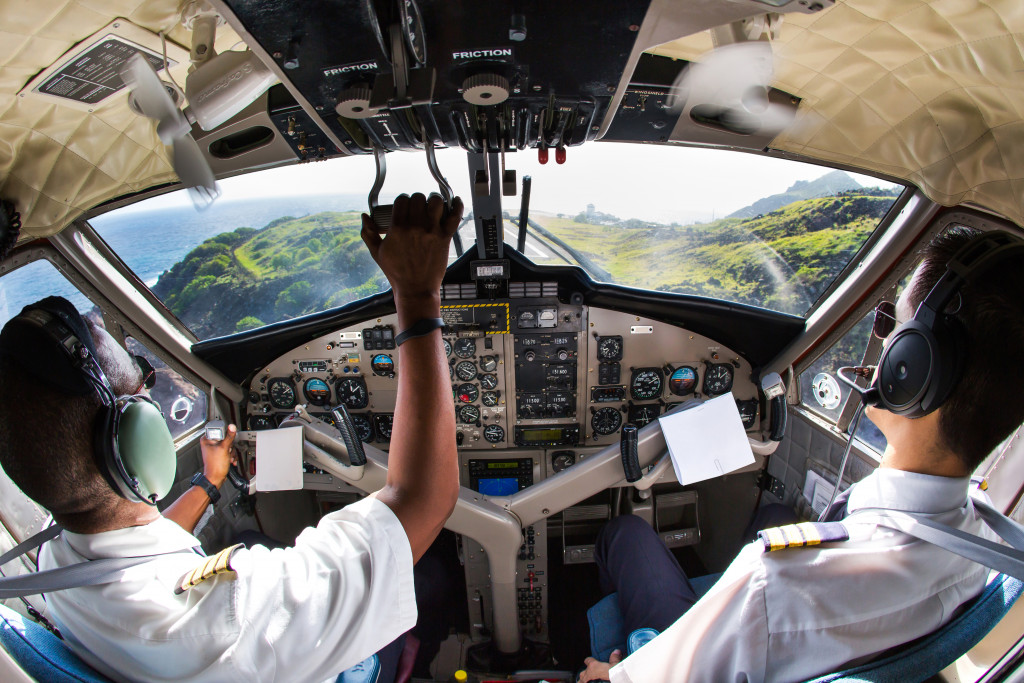The aviation industry is changing faster than ever before, thanks to the advent of new and emerging technologies. These technologies are helping airlines and airports become more efficient and passenger-friendly. In this article, we take a look at the top 11 emerging technology trends for the aviation industry.
1. Customer Service Automation
With the help of artificial intelligence (AI) and chatbots, airlines are now able to automate customer service. This means that passengers can get their questions answered without having to speak to a human agent. This is not only more convenient for passengers, but it also saves airlines money.
2. Baggage Tracking
Thanks to RFID tags and GPS, it is now possible to track baggage in real-time. This means that passengers no longer have to worry about lost or delayed luggage. It also helps airlines to keep track of their inventory and improve their overall efficiency.
3. Predictive Maintenance
With the help of data analytics, airlines are now able to predict when aircraft need maintenance. This allows them to schedule maintenance before problems arise, which reduces downtime and keeps planes in the air.
4. Fuel Efficiency
Airlines are always looking for ways to reduce fuel consumption. The use of alternative fuels, such as biofuels, is one way to achieve this. Another way is to use more fuel-efficient aircraft. These aircraft are often lighter and have more aerodynamic designs.
5. Enhanced Navigation
The use of GPS and other navigation aids has made flying much safer. However, there is still room for improvement. The next generation of navigation systems will be even more accurate and will provide pilots with more information about their surroundings.

6. Automatic Landing
The technology for automatic landing has been around for some time. However, it is only now that it is becoming commercially viable. This technology will allow planes to land without the need for a human pilot. However, there will still be a need for pilots to take off and land in bad weather.
7. Air Traffic Management
The increase in air traffic is one of the biggest challenges facing the aviation industry. To manage this growth, airlines are investing in new air traffic management systems. These systems use data analytics to predict traffic patterns and help controllers direct aircraft more efficiently.
8. Security
The threat of terrorism is a major concern for the aviation industry. To combat this, airlines are investing in new security technologies. These include biometric scanners, which can identify passengers by their unique physical characteristics.
9. Connectivity
More and more passengers are using their smartphones and other devices to stay connected while in the air. Airlines are investing in in-flight Wi-Fi and other connectivity solutions to meet this demand. This allows passengers to stay connected to their work, family, and friends while in the air.
10. Big Data
The aviation industry generates a huge amount of data. This data can be used to improve operations, understand customer needs, and make better business decisions. Airlines that are able to harness the power of big data will have a competitive advantage in the market.
11. Electric Aircraft
Electric aircraft are still in the early stages of development. However, they have the potential to revolutionize the aviation industry. Electric aircraft are much quieter than traditional aircraft and produce zero emissions. This makes them a more sustainable option for air travel.
Tips for Pilots Before Flying
Now that you know the top 10 emerging technology trends for aviation, it’s time to learn some basic tips for pilots before flying.
- You should always check the weather conditions before flying. This will help you know if any adverse conditions could affect your flight.
- Make sure that you have a pre-flight checklist. This will help you make sure that everything is in order before you take off.
- Always be aware of your surroundings. This includes other aircraft, as well as potential hazards on the ground.
- Be prepared for emergencies. This means having a plan in place in case something goes wrong.
- Know your airplane. This includes its capabilities and limitations. For example, you should know how much weight it can safely carry.
- Check the airplane’s instruments before taking off. For example, the tires of airplanes must be inflated to the proper pressure.
- Keep your airplane clean. This includes both the interior and exterior. A clean airplane is a happy airplane.
- Always have a backup plan. This is especially important if you are flying in an unfamiliar area.
Now that you know the top 11 emerging technology trends for aviation, you are well to become a better pilot. Also, keep these tips in mind and you will be sure to have a safe and enjoyable flight.

